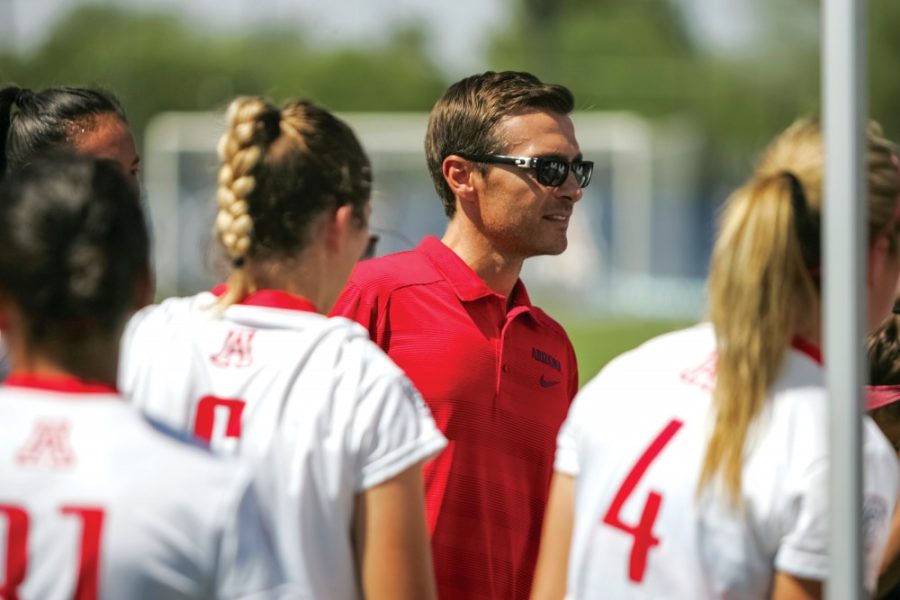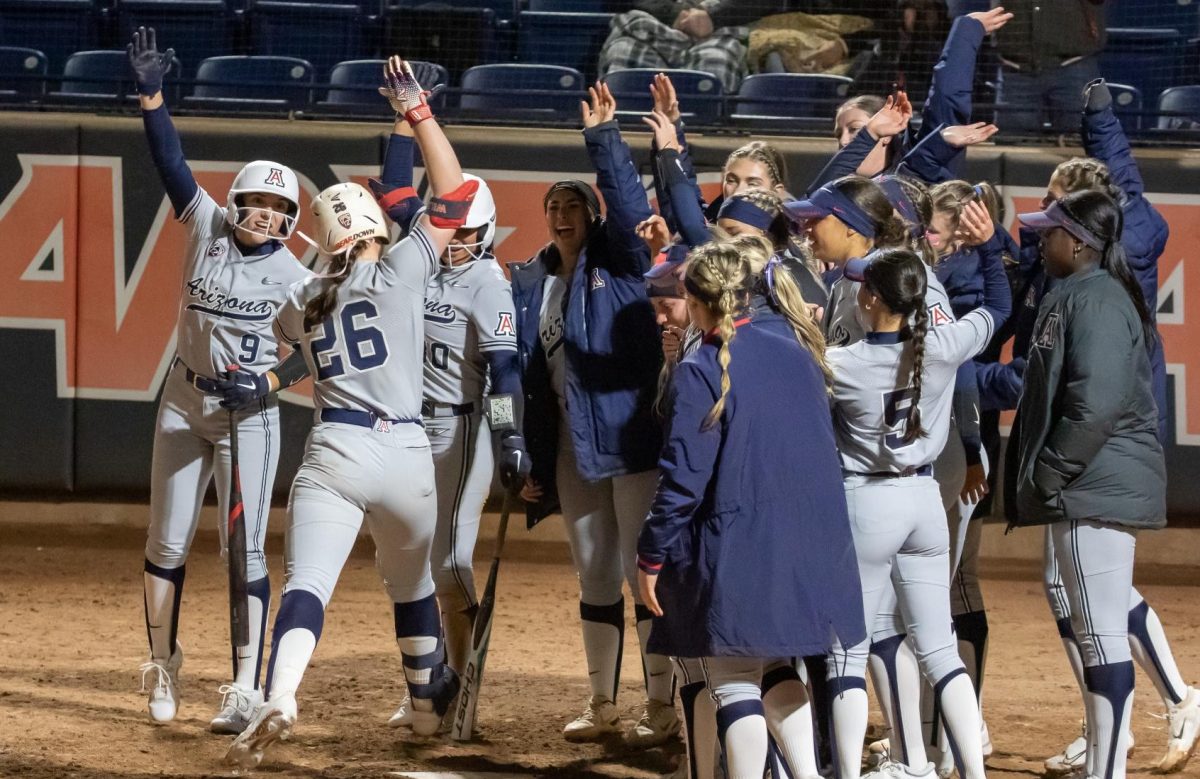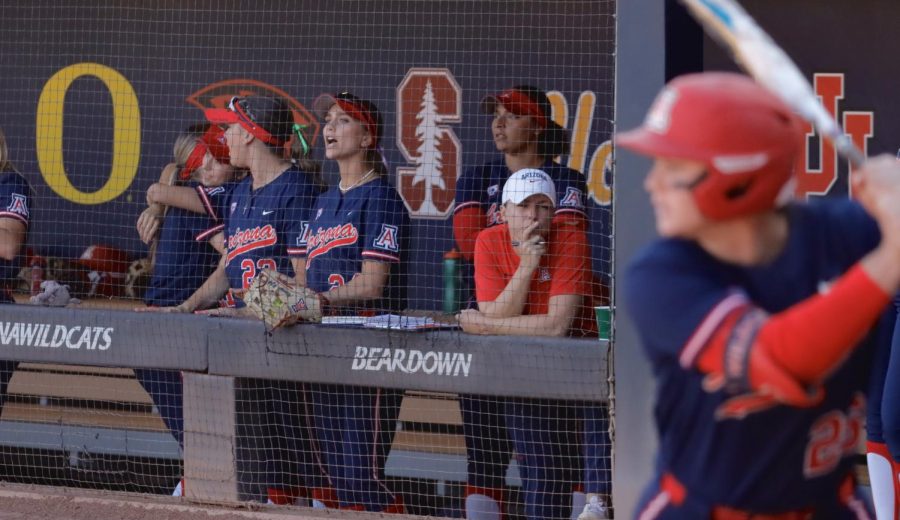It wasn’t too long ago that Arizona women’s soccer was begging for wins at the bottom of the Pac-12 standings. In 2011, the team had a 1-9-1 conference record and ended the season 1-16-2. The program had only been to the NCAA tournament twice in the prior 15 years and finished with a winning record only two times in that span. It was obvious that the program was in desperate need of someone to reverse its losing ways.
Arizona Athletics would make one of its most pivotal decisions when they hired former player and now current head coach Tony Amato. Amato had accumulated quite the resume prior to accepting Arizona’s vacant head coach position in 2013. He played soccer for four years at Rollins College in Winter Park, Fla., before taking his first Division I coaching job at Stephen F. Austin in 2010. He compiled a win-loss record of 45-12-3 in his three years there while also winning conference titles in 2011 and 2012 with a combined league record of 17-0. Amato had grown accustomed to the winning mentality, but that was something that had to be built from scratch when he arrived in Tucson.
“The first thing that jumped into my head when I got here was to win,” Amato said. “It’s not win at all costs. It’s not lie, steal and cheat to win. Our goal was to win and focus on the things that relate to winning and hone in on that. We’ve been able to do that with players who are willing to buy into what we’re doing and we’ve been successful so far.”
RELATED: Arizona soccer loses heartbreaker to Penn State in overtime
Arizona women’s soccer made a complete turnaround in Amato’s first year as head coach, going 9-7-4 in 2013, which was the most wins by a first-year head coach in program history. Despite the immediate improvement, Amato didn’t feel the program was in good shape until 2014. The Wildcats won 11 games that year and made it to the NCAA tournament for the first time since 2005.
“Our first season here we went above .500 in 2013 and really we were just trying to figure things out,” Amato said. “But in 2014, we made the tournament, went on the road in cold conditions and won that game and I think that was really telling of what we could do moving forward.”
Arizona would go on to make the postseason in four of the next five years while finishing .500 or better with at least nine wins in each year. Winning more games changed several things within the program, one of those being on the recruiting trail.
“In 2013, we were talking mostly about how we were going to be good,” Amato said. “I know we don’t have the greatest record right now, but trust us. We’re going to get good and you can help us get better. It was a bit of a leap of faith. Now we are good and we’re talking about how we’re going to take that next step and go from good to great.”
One thing has always stayed the same, however, and that’s the motivation and desire to build a legacy during their time on campus. Senior midfielder Kelcey Cavarra has been with the team for four years and has seen the progression of the program first-hand.
“We haven’t been to the NCAA tournament for three straight years, so that’s pretty big. We always talk about building a legacy and this is just part of it and the legacy we want to leave,” Cavarra said.
“It’s something that we talk about from day one,” Amato said. “If you want to make it good, you have to take responsibility in that and when you leave, it has to be better than it was when you got here and that’s the legacy part.”
Tony Amato recently signed a contract extension that retains him as the head coach through 2021, making it safe to say that Arizona women’s soccer is in good hands for years to come.
Follow Jacob Mennuti on Twitter









